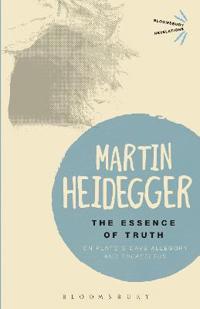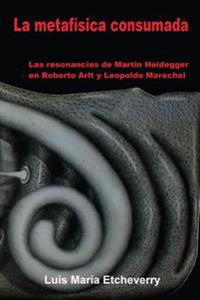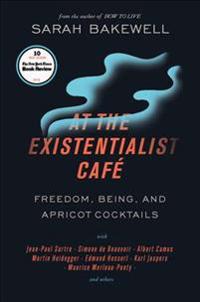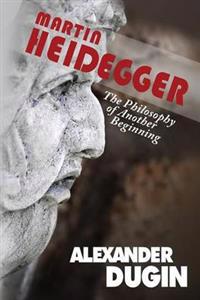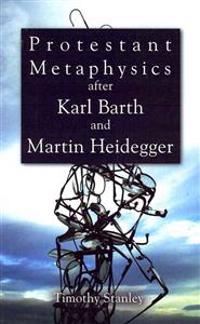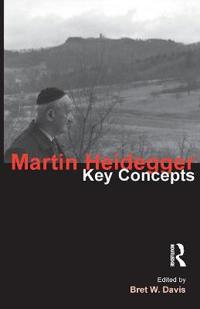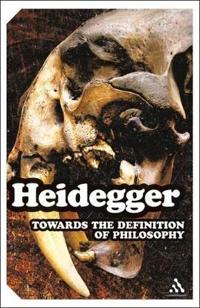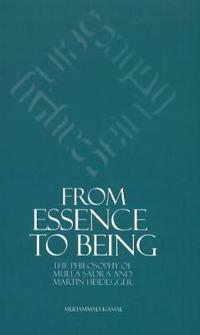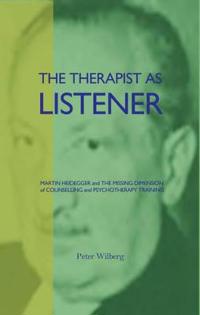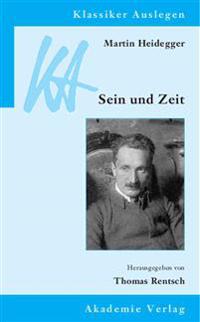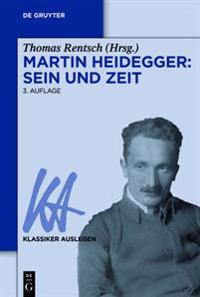The Concept of Time (Pocket)
avMartin Heidegger
ISBN: 9781441105622 - UTGIVEN: 2011-07-14"This English translation Continuum 2011 Originally published in German as Der Begriff der Zeit Vittorio Klostermann, GmbH, Frankfurt am Main, 2004."[...]
Nature, History, State (Pocket)
avMartin Heidegger, Gregory (TRN) Fried, Richard (TRN) Polt
ISBN: 9781441116178 - UTGIVEN: 2015-04Nature, History, State: 1933-1934 presents the first complete English-language translation of Heidegger's seminar 'On the Essence and Concepts of Nature, History and State', together with full introductory material and interpretive essays by five leading thinkers and scholars: Robert Bernasconi, Pet[...]
Basic Problems Of Phenomenology (Inbunden)
avMartin Heidegger
ISBN: 9781441119483 - UTGIVEN: 2012-12-06The first English translation of one of Martin Heidegger's key lecture courses, in which he attempts to clarify the concept of phenomenology.[...]
The Essence of Truth (Häftad)
avMartin Heidegger
ISBN: 9781472525710 - UTGIVEN: 2013-10The Essence of Truth is an examination of the most fundamental theme in Heidegger's philosophy: the difference between truth as 'the unhiddenness of beings' and truth as 'the correctness of propositions'. Based on a course of lectures delivered at the University of Freiburg in 1932, the book present[...]
Martin Heidegger and the First World War (häftad)
ISBN: 9781498516259 - UTGIVEN: 2015-03In a 1934 speech, marking the Twenty-fifth Reunion of his high school class, Martin Heidegger spoke eloquently of classmates killed in the Great War and called on his audience to recognize that the national rebirth now occuring in Hitler's Germany must continue to draw inspiration from the war dead.[...]
La Metafisica Consumada: Las Resonancias de Martin Heidegger En Roberto Arlt y Leopoldo Marechal (häftad)
ISBN: 9781512137224 - UTGIVEN: 2015-05El Salto Abismal: Martin Heidegger En Antonio Di Benedetto, Jorge Luis Borges y Julio Cortazar (häftad)
ISBN: 9781512266061 - UTGIVEN: 2015-05At the Existentialist Cafe: Freedom, Being, and Apricot Cocktails with Jean-Paul Sartre, Simone de Beauvoir, Albert Camus, Martin Heidegger, Mauri
ISBN: 9781590514887 - UTGIVEN: 2016-03From the best-selling author of "How to Live," a spirited account of one of the twentieth century s major intellectual movements and the revolutionary thinkers who came to shape it
Paris, 1933: three contemporaries meet over apricot cocktails at the Bec-de-Gaz bar on the rue Montparnasse. They [...]At the Existentialist Cafe: Freedom, Being, and Apricot Cocktails with Jean-Paul Sartre, Simone de Beauvoir, Albert Camus, Martin Heidegger, Mauri (häftad)
ISBN: 9781590518892 - UTGIVEN: 2017-08Named one of the Ten Best Books of 2016 by the New York Times, a spirited account of a major intellectual movement of the twentieth century and the revolutionary thinkers who came to shape it, by the best-selling author of How to Live Sarah Bakewell. Paris, 1933: three contemporaries meet over apric[...]
Martin Heidegger: The Philosophy of Another Beginning (Häftad)
avAlexander Dugin, Paul E. Gottfried
ISBN: 9781593680374 - UTGIVEN: 2014-10Protestant Metaphysics After Karl Barth and Martin Heidegger (Häftad)
avTimothy Stanley
ISBN: 9781608996919 - UTGIVEN: 2010-08Martin Heidegger (Häftad)
ISBN: 9781844651993 - UTGIVEN: 200911Heidegger's writings are among the most formidable in recent philosophy. The pivotal concepts of his thought are for many the source of both fascination and frustration. Yet any student of philosophy needs to become acquainted with Heidegger's thought. "Martin Heidegger: Key Concepts" is designed to[...]
Towards the Definition of Philosophy (Häftad)
avMartin Heidegger
ISBN: 9781847063045 - UTGIVEN: 2008-05This book brings together two seminal lecture courses of 1918 - now available in our hugely successful "Impacts" series.Heidegger is widely regarded as the 20th Century's most original philosopher. "Towards the Definition of Philosophy" brings together - in their first English translation - two of h[...]
From essence to being - the philosophy of mulla sadra & martin heidegger
ISBN: 9781904063377 - UTGIVEN: 2010-04An analysis that delves into the most controversial subjects of Islamic and Western existential philosophy. It explores the philosophical 'turn', ontological difference, becoming, and nothingness in the ontology of Mulla Sadra and Martin Heidegger.[...]
The Therapist as Listener: Martin Heidegger and the Missing Dimension of Counselling and Psychotherapy Training (Häftad)
avPeter Wilberg
ISBN: 9781904519058 - UTGIVEN: 200406From "talking cures" to listening therapy, this is a new philosophy and psychology of therapeutic listening, and its significance in counselling and psychotherapy training.[...]
Sein und Zeit (Häftad)
avMartin Heidegger
ISBN: 9783050043753 - UTGIVEN: 2008-01Ohne Martin Heideggers Sein und Zeit von 1927 läßt sich weder die Philosophie des 20. Jhs. noch die philosophische Gegenwartsdiskussion verstehen. Wie kam es, daß sein bahnbrechender, innovativer Zugang zur Welt und zur menschlichen Existenz, sein neues Verständnis von Zeit und Geschichte, Sorge[...]
Martin Heidegger Sein Und Zeit (Häftad)
avThomas Rentsch
ISBN: 9783110377170 - UTGIVEN: 2015-01The unique intermediary position of Martin Heidegger s Being and Time (1927) between ontology, transcendental philosophy, phenomenology, existential analysis, and hermeneutics along with the controversial history of its interpretation make an introductory commentary essential. For this 3rd edition t[...]
Martin Heidegger, Unterwegs Zur Sprache (1950-1959)
ISBN: 9783465000792 - UTGIVEN: 2018-02Die Texte dieses Bandes sind, mit Ausnahme des 1953/54 niedergeschriebenen Gesprachs, Vortrage, die Heidegger zwischen 1950 und 1959 gehalten hat. Alle Texte denken dem Wesen der Sprache nach. In den beiden ersten Texten fuhrt Heidegger sein denkendes Gesprach mit der Dichtung Georg Trakls, im viert[...]
Martin Heidegger, Parmenides (Wintersemester 1942/43)
ISBN: 9783465003564 - UTGIVEN: 2018-03Der seinsgeschichtliche Wandel der Unverborgenheit wird in dieser Vorlesung zusammen mit dem Wandel ihres Gegenwesens, der Verborgenheit (Lethe) gesehen (pseudos, falsum, Unrichtigkeit, Falschheit). Der letzte Mythos von der Lethe wird anhand der Politeia der Polis (Platon) gedacht. Der todestrachti[...]
Frühe Schriften (Häftad)
avMartin Heidegger
ISBN: 9783465008811 - UTGIVEN: 1972-01Dieser Band vereinigt die Dissertation "Die Lehre vom Urteil im Psychologismus" (1914), die Habilitationsschrift "Die Kategorien- und Bedeutungslehre des Duns Scotus" (1916) und den Habilitationsvortrag "Der Zeitbegriff in der Geschichtswissenschaft" (1916). In einem längeren Vorwort gibt Heidegger[...]




